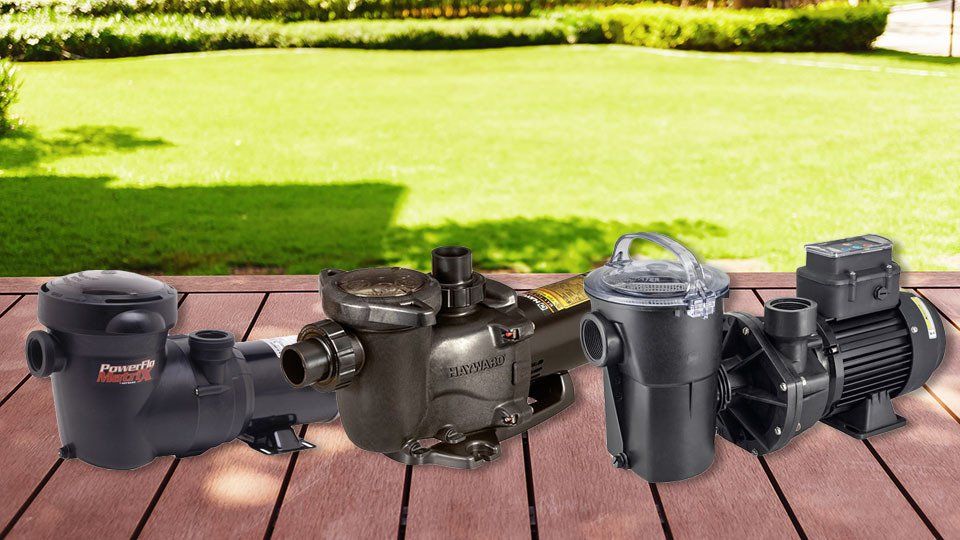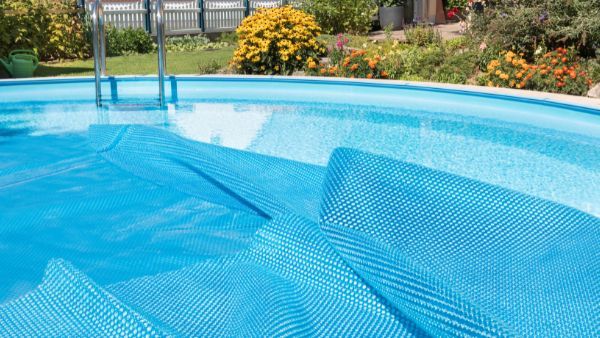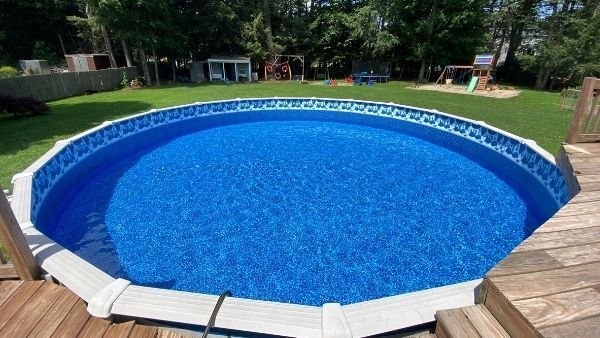How to Select the Right Above Ground Pool Pump
When selecting an above ground pool you also need to choose the proper pool equipment. Matching a specific above ground pool pump is a relatively easy process when you know how they work.
The right pool pump is an investment that can affect your energy costs and the ease of maintaining your pool. It’s worth taking the time to find the best pump that fits your pool’s needs.
Here are the three considerations you need to choose the best above ground pool pump.
Choose the Speed
Pool pumps come in three-speed settings: single speed, dual speed, or variable speed pumps.
Single-speed is exactly as it sounds. It’s a pump that runs continuously at one speed, no matter what. This makes it rather inefficient since it’s going at full power even when no one uses the pool. Some states like Arizona or California have banned the installation of new single-speed pumps years ago due to their inefficiency.
A
dual speed pump has a low speed or a high speed. The high speed runs at the same rate as a single-speed pump and is great for vacuuming or balancing the pool. The lower speed saves energy when used the rest of the time and can ultimately lower pool pumps energy cost.
A
variable speed pump works entirely different from the other two. It has a motor more like an electric car, which makes it not only the most energy-efficient pump but it also reduces the noise of the pump. It’s optimal for keeping water moving at an efficient rate. While the initial investment is higher, it can
save 50% to 75% of your energy in the long run.
Note: A new law “Energy Conservation Standards for Dedicated-Purpose Pool Pump Motors” passed by the Department of Energy (DOE) prohibits the manufacture of pool pumps that don’t pass a certain efficiency standard. Most single-speed pumps with a few exceptions will no longer be available. The new regulation will take effect starting July 19th, 2021.
Horsepower
Above ground pools typically require less horsepower because they’re smaller and often gravity fed. The horsepower will affect water currents and the rate at which water circulates within the pool.
You need a pump that’s strong enough to circulate the water in your pool, but not too strong or it can create irregular water flows. It’s also inefficient and will end up costing more to run.
If you opt for a sand filter for your
filtration system, anything stronger than 1.5 horsepower will end up sending sand back into your pool. For most standard above ground pools, 1 horsepower is strong enough to steadily run your pool.
Pool Size
Finally, you need to know how big your pool is, and how many gallons per minute your pool pump will pump.
To do this, you need to calculate the volume of your pool. Luckily Swim University’s
Pool Calculator makes it easy by giving you a reference chart. Once you know the volume, divide by 8 to find out how many gallons per hour your pump needs to move. Typically your pool pump runs 8 to 10 hours per day, so using both numbers should give you a good range.
Volume/8 hours = gallons per hour (GPH)
Now divide GPH by 60 since pool pumps are usually labeled in gallons per minute (GPM)
You need a pump that can filter through your pool’s entire volume every single day. If you’re looking at pumps that can filter either above or below your pool’s volume, always choose the pump that can move more water. This will help keep your pool crystal clear.
The Right Pump Will Make Caring For Your Pool Easier and More Cost-Effective
Once you know the type of speed you want for your pump, the horsepower you need, and the GPM your pump needs to move, you can pick the perfect above ground pool pump to help you get the most out of your pool.
For assistance in choosing the right pool pump for your above ground pool
contact us or visit our store at 3 Newton Junction Road in Kingston, NH.





